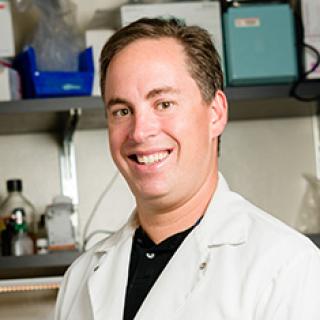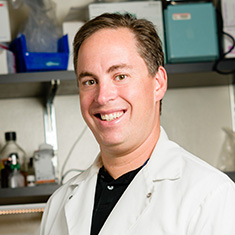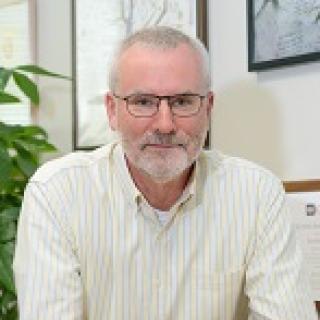
Jonathan M. Weiss, Ph.D.
- Center for Cancer Research
- National Cancer Institute
- Building 560; Room 31-45
- Frederick, MD 21702-1201
- (301) 846-5394
- (301) 846-1673
- weissjo@mail.nih.gov
RESEARCH SUMMARY
Dr. Weiss is investigating the mechanisms whereby combinations of cytokines and other immune-modulating drugs, such as anti-CD40, result in the eradication of tumors. Principally, he is interested in understanding the mechanisms of leukocyte recruitment into the tumor microenvironment and the responses by these tumor-infiltrating leukocytes as they relate to tumor progression and/or metastases.
Areas of Expertise

Jonathan M. Weiss, Ph.D.
Research
Combination-based immunotherapies may more effectively activate cells of both innate and adaptive immune responses. Using an orthotopic mouse model of renal cell carcinoma (RENCA), I am investigating the mechanisms whereby combinations of cytokines and other immune-modulating drugs, such as anti-CD40, result in the eradication of tumors. Principally, I am interested in understanding the mechanisms of leukocyte recruitment into the tumor microenvironment and the responses by these tumor-infiltrating leukocytes as they relate to tumor progression and/or metastases.
Publications
Itaconic acid mediates crosstalk between macrophage metabolism and peritoneal tumors
Regulatory T cells and myeloid-derived suppressor cells in the tumor microenvironment undergo Fas-dependent cell death during IL-2/αCD40 therapy
CD40 expression in renal cell carcinoma is associated with tumor apoptosis, CD8(+) T cell frequency and patient survival
Macrophage-dependent nitric oxide expression regulates tumor cell detachment and metastasis after IL-2/anti-CD40 immunotherapy
Successful immunotherapy with IL-2/anti-CD40 induces the chemokine-mediated mitigation of an immunosuppressive tumor microenvironment
Biography

Jonathan M. Weiss, Ph.D.
Jonathan Weiss received his Ph.D. from Albert Einstein College of Medicine in 1998, where he studied the role of chemokines and cellular adhesion molecules in mediating leukocyte transmigration across the human blood-brain barrier with Dr. Joan Berman. He was then a postdoc with Dr. Leslie Parise at the University of North Carolina Chapel Hill, where he studied the molecular regulation of platelet aggregation. He continued his postdoctoral training at the University of Virginia with Dr. Alan Horwitz, where he utilized a high-throughput screening strategy to screen for novel molecular regulators of cell adhesion and migration. After that, he spent three years as a research scientist at MaxCyte, Inc., a biotechnology company focused on the electroporation of DNA and siRNA into primary hematopoietic cells. His research there demonstrated the enhanced anti-tumor response through ex vivo loading of dendritic cells with whole tumor lysate. In 2005, he joined the Cancer and Inflammation Program where his current research focuses on the immunotherapy of renal cell carcinoma by combination cytokine therapy.
